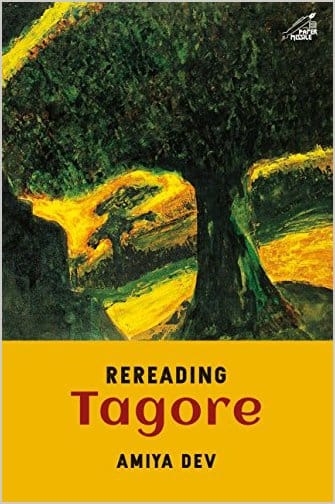
Amiya Dev’s ode to Tagore revisits his known work, and some unknown, all the while increasing your thirst to read these pieces unabridged
For most lovers of literature, Rabindranath Tagore remains a poignant read but for Amiya Dev, author of Rereading Tagore, he is a subject of social, philosophical and spiritual rumination.
Dev revisits excerpts of Tagore’s work, poetry and prose, and translates them again, all the while making you hum the composition, pulling the immortal tunes from memory. The real power of this collection of essays is that it lives up to its title — it does make you reach out and read the unabridged Tagore.
Dev’s love for the Nobel laureate is evident, as Rereading Tagore is mostly adulation than thoughtful critical analysis. The author, a former comparative literature professor at Jadavpur University, gives away the tone of his work right at the beginning. “Hope I shall be pardoned for naming the book after an act of mine. It is not a blanket of thrust of subjectivity on the objective phenomenon of Tagore’s writings,” he writes.
This collection dissects some of Tagore’s famous works such as Gora, The Post Office, and Jogajog among others. It contextualises some of Tagore’s works such as Mukhtodhara, which Dev says could apply to the Narmada Bachao Andolan, and Char Adhyay with acts of terrorism during the Swadeshi movement.
Through these chapters, Dev also provides us insightful backdrop on what influenced these famous works. For example, ‘The Post Office,’ he writes, was performed by Tagore himself in Jorasanko in 1917. Tagore had later seen a German production of the play at Berlin in 1921 but was not enthused by the interpretation. The play was performed again in 1939 in Shantiniketan with the addition of a new song.
All scholar studying Tagore classify his works into travel writing, nature and spiritual songs. Dev does it too and with due diligence. His ‘I’ and ‘you’ approach to analysing Tagore’s Bhakti songs are commendable. “’I’ is talking to ‘You’, urgently no doubt, but in relatively familiar terms and expecting a response. ‘You’ is not the formal ‘Lord’ of brahmasamgits, but a ‘lord’ that knows ‘I’ with his possible topor,” he writes.
Rereading Tagore is not for those looking for a light read. This book, despite the absence of a critical take on Tagore, will make you reach out to Tagore and his seemingly simple yet complex creations 150 years after his birth. The real fun of Tagore after all lies in reading and re-reading him, in every stage of life to discover newer sides to the legend.


COMMENTS